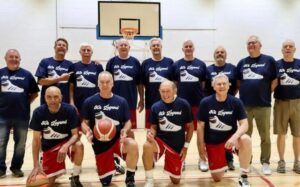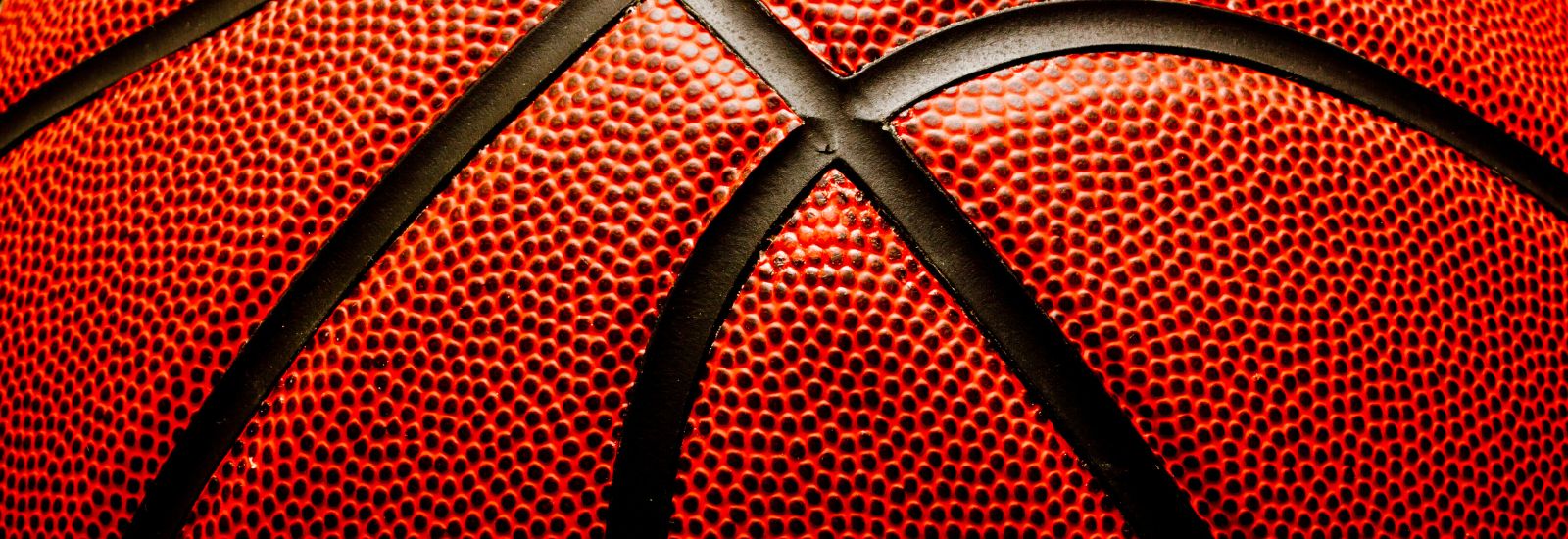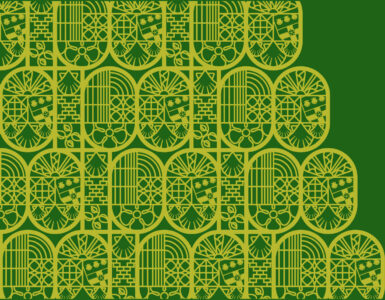“Getting to the top of anything takes huge determination. It takes hard work, the dedication of others to support you, and often many sacrifices along the way,” reflected Reading graduate Barry Huxley.
As the Paris Games came to a close last month, CONNECTED spoke to the former England basketball player about his favourite memories of Bulmershe College and his sporting, teaching and coaching career.
A tight-knit community
Barry’s passion for basketball was first sparked when he started playing competitively at school and training some of the junior teams. His teachers, one of whom became a lecturer at the University, recommended that he looked into studying at Bulmershe College.
Bulmershe College merged with the University of Reading in 1965, bringing a new campus that became home to education and theatre studies. Barry enrolled on a course to study physical education at the College in 1966. “It was a brand new, self-contained campus,” he said. “There was shared student accommodation and the lecturers had a refreshing, liberal attitude. It was a very, very exciting place to be!”
 Barry was selected to play basketball for England just before he started studying at Bulmershe College. He continued to play for the senior team during his time at university and, although he recalls that this was one of the biggest stand-out memories from his time at Reading, it wasn’t just his sporting achievements that made his experience so positive.
Barry was selected to play basketball for England just before he started studying at Bulmershe College. He continued to play for the senior team during his time at university and, although he recalls that this was one of the biggest stand-out memories from his time at Reading, it wasn’t just his sporting achievements that made his experience so positive.
Reminiscing about student life, Barry said: “We had a great social life. There was a really tight-knit student community around the campus. I remember many nights at the Students’ Union which served beer as cheap as chips, and the music concerts with celebrated artists such as Amen Corner and the American soul singer, P.P. Arnold. The regular college discos were also fabulous and free to students.”
Representing England
Shortly after moving to Reading from the Midlands, Barry was invited to play for Sutton & Crystal Palace Basketball Club (SCP) which is where his sporting career really started to thrive.
Soon after Barry joined the Club they became national champions and speaking about his time at SCP, Barry said: “Being chosen as the Club’s captain was a huge privilege. It gave me lots of wonderful opportunities including travelling to many different European countries.
“The highlight of my sporting career has to be when England came up against the Soviet Union basketball team in Belgium. It was a highly competitive game that we unfortunately lost. It was a huge learning curve for us, but despite the loss it was an incredible experience to have played on the same court as the future Olympic champions!”
After seven years at SCP, Barry decided his time representing the Club was sadly over. He said: “As all athletes know, there comes a time when your sporting career will inevitably come to an end. I had achieved so much in so many ways and I wanted to leave on a high. So, at the end of a successful season where we had become triple champions at the National League, National Cup and the Great Britain tournament, I decided to leave.
“It was so hard to walk away from the sport that I loved so dearly,” he shared. “It was heartbreaking.”
Inspiring the next generation
In 1969 Barry secured his first teaching job at an Inner London Education Authority (ILEA) school in Clerkenwell, East London. He went on to work at various schools in different positions including Head of Department and Head of Centre for Community Education. And, during this time, Barry decided he wanted to return to Reading to convert his Teaching Certificate into a degree in teaching.
After obtaining his degree, in 1989 Barry moved to the newly-formed local authority Schools Inspectorate in Islington, and then in Hammersmith & Fulham.
Throughout Barry’s teaching career basketball remained a key part of the curriculum. He said: “My love for the sport was rekindled through coaching in schools, youth clubs and overseas in the Bahamas and Canada.
“My biggest highlight was when I coached students at Imperial College London. When I started coaching them in 2001, the team were in the lower half of the Second Division of the London Universities Sports League, and six years later they ended up winning the League!
“This was all down to their hard work and their drive to want to better themselves in the sport.”
During his time as a teacher and coach, the SCP Basketball Club sadly disbanded. It was around this same time that Barry also decided to retire from teaching and coaching students.
Reigniting the fire
However, two years ago, Barry was contacted by one of his fellow basketball players who mentioned the Club were thinking of getting back together to enter the annual GB Masters Basketball tournament.
On hearing this news, Barry said: “I was absolutely thrilled to be invited to play with my old teammates again, many of whom I had not seen for years.”
Reforming under the name of SCP Reunited, the Club entered the oldest age category of the tournament and were once again crowned champions.
“We were all much older, slower and possibly wiser, but with the same desire to win,” Barry shared.
“The old fire in my belly was certainly reignited!”
Getting to the top
With plans for the next Olympic cycle already underway, many athletes will be aspiring to compete at the next Games, while some will be thinking about retiring from their respective sports. As a former athlete, Barry offered up some advice for those who may find themselves in a similar position to him.
He said: “Getting to the top of anything takes huge determination. It takes hard work, the dedication of others to support you, and often many sacrifices along the way. The support of others – whether they are your teachers, coaches, parents or partners – should never be underestimated and should be hugely respected.
“But I believe that it’s the desire to want to win – and win fairly – that drives athletes to the top.
“There are inevitably going to be huge disappointments along the way – one only has to look at the dejected faces of the England men’s football team at the Euro 2024 competition to see what that means.
“However, losing honourably should be used as the motivation to work harder and get to the top. When I stopped playing it felt like my whole world had ended. But it was not the end. The game goes on. Get out there, play it and much more than that, enjoy it!”
Discover other sporting success stories from our University community – Reading alum Mathilda Hodgkins-Byrne won bronze in the Paris Olympic Games, and current Reading student, Ed Fuller, won gold in the Paris Paralympic Games.







